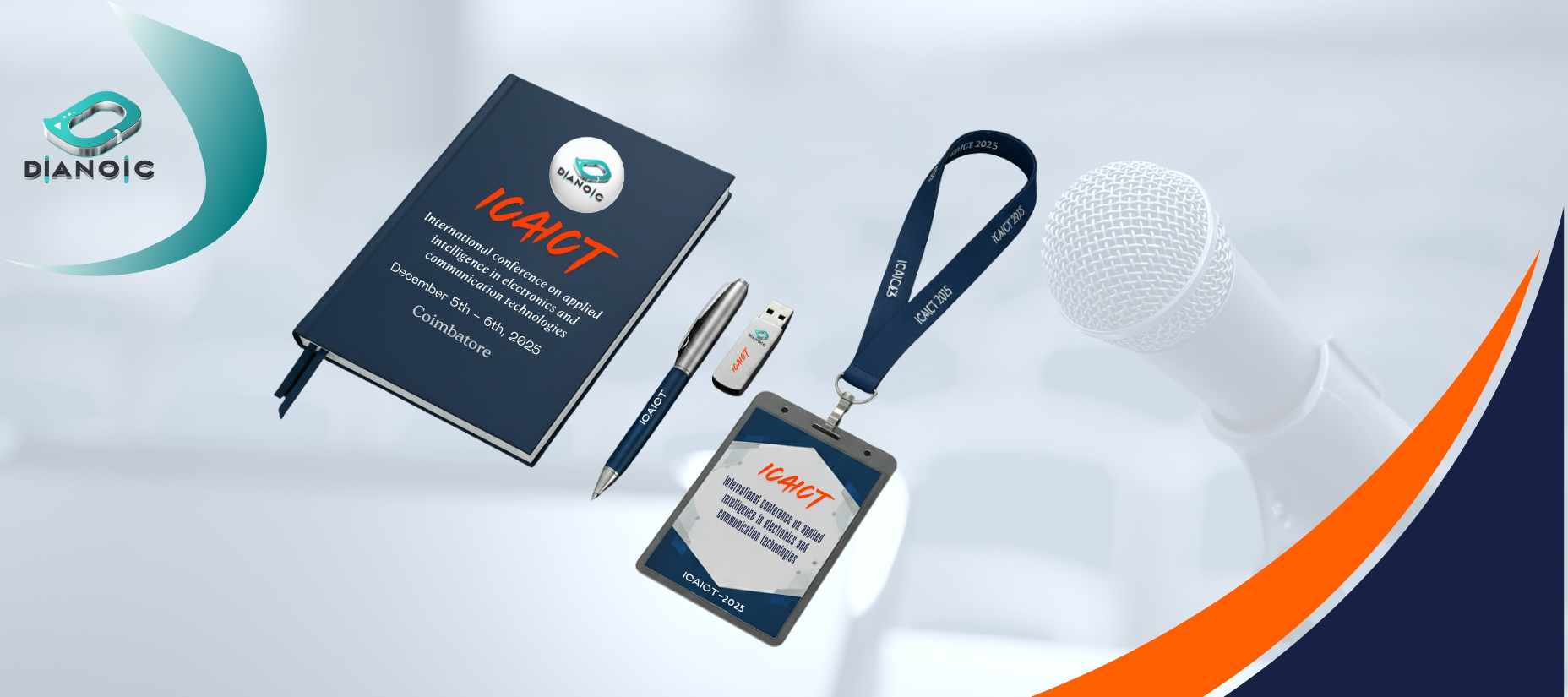-
Smart Electronics
🔹Analog and Digital Circuits
🔹Antenna Design and RF Propagation
🔹Microwaves Circuits Design
🔹 Smart Energy Systems
🔹Nano Electronics and Microelectronics Micro Processor
🔹 Electrical Machines and Drive Systems
🔹 Electric Vehicle Technologies
🔹 Low Power Electronics
🔹Embedded Systems
🔹Signal and Image Processing and Cryptography
🔹Robotics and Automation
🔹 VLSI for DSP
🔹Nano-Fabrication & Computing
🔹Semiconductor Technology
🔹 Materials for Electronics
🔹Humanoid Robots
🔹 Filters and Data Conversion Circuits
🔹Digital Circuits
🔹Mixed Signal Circuits
🔹Adaptive Signal Processing
🔹ASIC & SOC
🔹CAD for VLSI
🔹Antenna Systems
🔹MEMS and Sensors Design
🔹 Electronic System Level Design -
Communication Technologies
🔹Information and Communication Technologies
🔹Cooperative Communications
🔹Wireless Networks
🔹Sensing and Sensor Networks
🔹Internet Technology & Applications
🔹Cyber-Physical Systems for Sustainable Computing
🔹Mobile Computing and Communication
🔹Smart City Technologies and Systems
🔹Information and Data Processing
🔹Artificial Intelligence and Neural Networks
🔹Optical Communication and Components
🔹Communication Theory and Information Theory
🔹Wired/Wireless Technology Integration
🔹Digital Forensics
🔹Internet of Things
🔹Big Data and Data Mining
🔹Green Pervasive Computing
🔹Mobile Social Networking
🔹Fuzzy, Neural and Evolutionary Computation
🔹Edge and Fog Computing
🔹Smart Security Models and Applications
🔹Wearable Systems and Technologies -
Sensors, Mems, And Bioelectronics (SMB)
Typical Themes
🔹 Physical and biochemical integrated sensors
🔹 Energy harvesting and storage devices
🔹Flexible devices for wearable applications
🔹MEMS for Internet of Things
🔹Bio-electronic interfaces and implantable devicesNew or Trending Areas
🔹Intelligent sensors with embedded AI
🔹Multimodal biochemical and physical sensors for healthcare
🔹Sensors and devices for human-machine interface
🔹Hybrid organic/inorganic microfabrication and device -
Memory Technology (MT)
Typical Themes
🔹Conventional memories
🔹Emerging memories
🔹3D memory technologies
🔹Memories for AI and near-memory computing applications
🔹In-Package memory for PPA augmentationNew or Trending Areas
🔹Memories to break the memory wall
🔹Memory-enabled artificial intelligence applications
🔹Memory-logic 3D stacking
🔹System-technology co-optimization
🔹Memory pooling and communication
🔹New memory hierarchy -
Neuromorphic and Novel Computing (NC)
Typical Themes
🔹Component level of FEOL/MEOL/BEOL reliability model
🔹Robustness and security of electronic circuits and systems
🔹Reliability of conventional and emerging memories
🔹Circuits, systems-level reliability, and aging
🔹Thermal and PID/charging management in existing and novel process integration
🔹Reliability of RF/mm-wave/5G in high-frequency
🔹applications
🔹Reliability of devices, circuits, and systems for more-than-Moore applications, automotive, aerospace and bio-applications (BioFETs, DNA detection, etc.)
🔹Reliability of cryogenic devices for future quantum
🔹computing applicationsNew or Trending Areas
🔹Reliability of new materials and/or new architectures for transistors
🔹Reliability of advanced 2.5D/3D IC advanced package
🔹Design for testing (DFT) / Design for reliability (DFR) solutions for improved reliability -
Advanced Logic Technology (ALT)
Typical Themes
🔹CMOS platform technologies & opportunities
🔹Logic device performance and circuit design challenges
🔹Advanced, novel process integration schemes and (applications-driven) scaling approaches
🔹Process module innovations and progresses in process control & process metrology
🔹Device technology co-optimization (DTCO), System technology co-optimization (STCO)New or Trending Areas
🔹GAA (vertically stacked) nanosheets based devices and circuits; new channel materials
🔹Sequential, monolithic 3D integration, heterogenous chiplets, 2.5/3D integration, thermal management
Logic for memory
🔹Interconnects (BEOL, Backside power delivery)
🔹BEOL compatible transistors -
Power, Millimeter Wave and Analog Technology (PMA)
Typical Themes
🔹Power and/or high speed (microwave to THz devices) devices, modules, and systems
🔹Manufacturing processes, device design, modeling, physics, and reliability of power and/or high-speed devices
🔹Fundamental studies on doping, traps, interface states, and device reliability for power and/or high-speed switching devices
🔹Micro and mm-wave devices, such as PAs, LNAs, switches and mixers.
🔹Energy harvesting devices and circuits
🔹Tunable passives, SAW/BAW devices, antenna arraysNew or Trending Areas
🔹Wide bandgap and ultra-wide bandgap semiconductors such as SiC, (Al)GaN, diamond, β-Ga2O3, BN
🔹Power devices for applications for automotive and aviation to smart grid
🔹Device and circuits for 5G and 6G
🔹Antenna arrays and beamforming
🔹Extreme environment power and high-speed devices -
Modeling and Simulation (MS)
Typical Themes
🔹Technology CAD and benchmarking
🔹Advanced logic and memory device modeling
🔹Atomistic material, process, and interconnect simulation
🔹Compact models for DTCO
🔹Alternative computing device modeling
🔹Nanoscale (bio) sensors modeling
🔹SRAM, DRAM, Flash, ReRAM, MRAM, PCRAM, ferroelectric memory, and 🔹memory selector for analog in-memory deep learning
🔹Memory, logic, and nanoelectronic devices with novel functions and/or materials for new and unconventional compute paradigms
🔹Probabilistic and approximate computing enabled by stochastic behaviors of devices and materials
🔹Emerging computing algorithms enabled by memory, logic, and nanoelectronic devicesNew or Trending Areas
🔹Multi-scale simulation with hybrid techniques
🔹Advanced packaging and 3D integration modeling
🔹Thermal modeling
🔹Low-temperature and quantum device modeling
🔹Device modeling for photonics
🔹Device modeling for in-memory and in-sensor computing -
Emerging Device and Computing Technology (EDT)
Typical Themes
🔹2D and devices on low-dimensional materials
🔹Non-CMOS emerging devices
🔹Neuromorphic and approximate computing devices
🔹Spintronic and magnetic devices
🔹Steep-slope devices
🔹Quantum computing devices.New or Trending Areas
🔹Topological materials and devices, and phase transitions transistors
🔹Emerging state machines, time dynamical systems, approximate computing
🔹Novel cryogenic devices -
Optoelectronics, Displays, and Imaging Systems (ODI)
Typical Themes
🔹Heterogeneous optoelectronic integration including sources, modulators or detectors
🔹Neuromorphic photonics
🔹Single photon emitters and detectors
🔹Luminescent devices based on new materials including perovskites and quantum dots
🔹Displays and imagers for augmented or virtual reality
🔹Holographic devices and displays
🔹Displays with unconventional form or size
🔹Photodetectors and imagers with new materials or flexible platform and printed electronics
🔹Imagers with unconventional spectral bandwidth, high sensitivity, or high time-resolution
🔹Image sensors with pixels for range sensing, TOF, RGBZ, LIDAR.New or Trending Areas
🔹Photonic devices for quantum computation and sensing
🔹Intelligent Image sensors
🔹Advanced on-chip optics for imagers
🔹In-display and under-display sensors
🔹kt2 of ScxAl1−xN piezoelectric material: LNO, LTO, AIN(Sc)…
Choose timezone
Your profile timezone:

